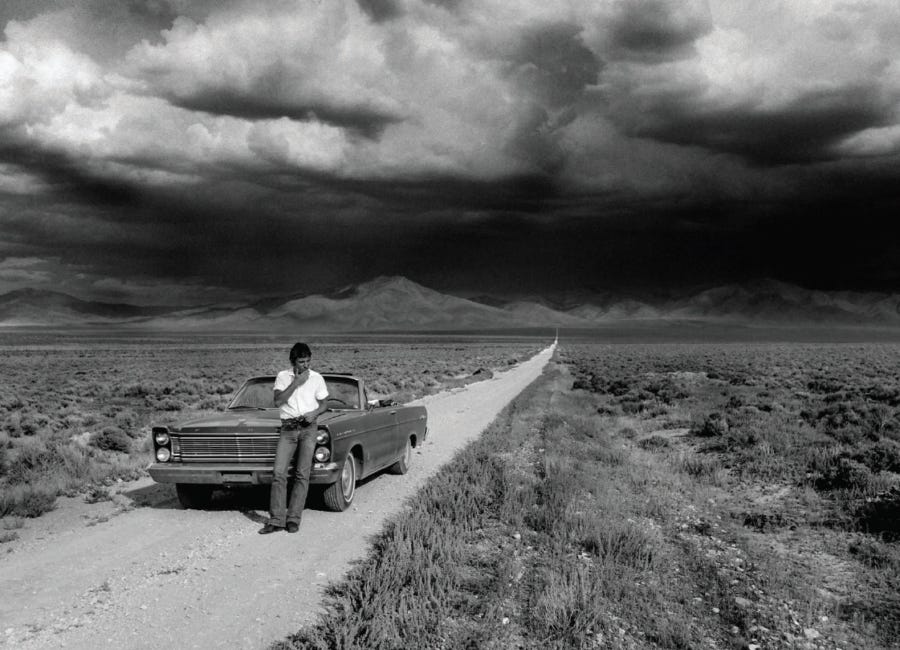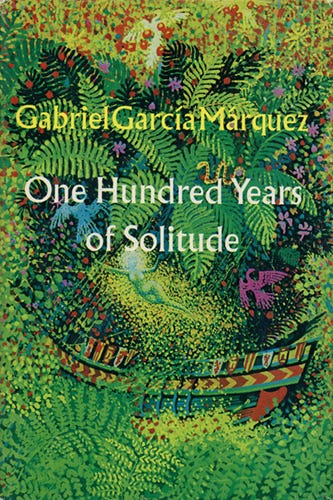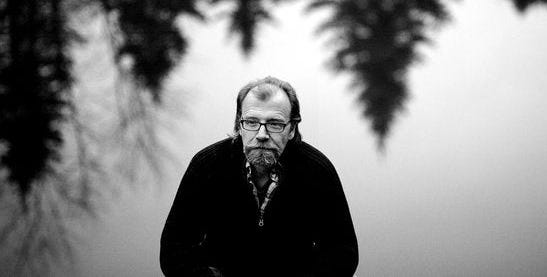Like a long road that stretches out in the distance, the first sentence in a story makes a promise.
I think about this a lot. And here I am mostly talking about short fiction, because in novels I like to be rooted in something, and then invited in. I also don’t mean when a story starts in media res (already in progress), I used to start stories with the equivalent of “cut the red wire, no the yellow wire…” Thinking I would grab the reader by the lapels and hope they were with me. (Spoiler: they weren’t.)
A lot, perhaps too much, has been made of famous first lines in fiction. The Dickens one about the best of limes the worst of limes (he was making margaritas), or "Happy families are all alike; every unhappy family is unhappy in its own way" - Tolstoy was a hoot at family gatherings.
My personal fave, well, I have two.
Marquez of course,
Many years later, as he faced the firing squad, Colonel Aureliano Buendía was to remember that distant afternoon when his father took him to discover ice.
—Gabriel García Márquez, One Hundred Years of Solitude
And then all us crime fiction lovers quote this one:
"When I finally caught up with Abraham Trahearne, he was drinking beer with an alcoholic bulldog named Fireball Roberts in a ramshackle joint just outside of Sonoma, California, drinking the heart right out of a fine spring afternoon."
—James Crumley, The Last Good Kiss by James Crumley
ANYWAY.
That’s not what I’m talking about. Those sort of lines come along once in a blue moon, or a pink one. And writers (myself included) can try too hard to find one. So they sound forced, or melodramatic, or just shitty.
I’m thinking more about what first lines do in short stories. In a short there’s is a lot of compression (or there should be), even more so in flash or micro-fiction (not a fan of the latter.) Often when I go back to editing a first story, I rewrite that first line because I finally know what the story is about. Or, that is the hope. Sometimes writing that first line helps me understand what it’s about.
The beginning line is not the time to be warming up the engine.
Okay, are you ready, I’m gonna tell you a story, it’s a good one, but I just need to idle a bit more…
No. Give it to me now. Make the promise.
That first line should tell me what I’m getting myself into. When I’m editing other’s work, or judging story competition, I find that I can tell a lot from that first line. There’s no formula for these, besides: be interesting. This goes back to the whole “Why are you telling this story?” question. I’ve talked about this somewhere on Substack, or maybe it was Tik Tok. I’m old. My memories not so good.
Intrigue and interest should also happen in the first paragraph, or the first page, but I’m amazed at how often I go back to that first sentence and see that my first impression was right. This was what the story was about. That first line can, and should, tell a lot.
This post is sounding way too judgy. Sure, there’s lot of takes on this, and way too many ways to skin a cat. Oh shit, now I’m gonna get letters! I love cats. Some of my best friends are cats.
I digress.
Let’s look at someone, say, George Saunders. This is the first line to his short story, Sticks (from 10th of December.)
Every year Thanksgiving night we flocked out behind Dad as he dragged the Santa suit to the road and draped it over a kind of crucifix he'd built out of metal pole in the yard.
Let’s break it down. What do we know? Some sort of family situation (we flocked behind Dad), the mention of a holiday and an annual tradition. Wait, a Santa Suit? And “dragged” (what a verb!!), followed by “draped.”… and then we get kicked right in the nuts by the mention of the crucifix, built by Dad, and then the whole damn image…
Like, holy crap right?
This is a promise, and a threat. You better read this fucking story right now. Okay, maybe that’s just me. But what a killer way to begin what turns out to be a very short story. A colleague of mine teaches this story in his English lit class, and for good reason.
What about us mere mortals? Can we write a first sentence this good. Maybe. Take a close look at a recent story of your own, and see if it makes a promise. And by that I mean to the reader of course. In some course I took, I had an instructor tell me that every sentence in a short story should point to the same thing: What is this story about? When I try to do that, and it’s not easy, the result is really quite something.
Here are some examples from three different short stories of mine:
(1) If I believed in God, I would thank him for making me lose my milk delivery job.
(2) A sliver of the garden, black as my mom’s coffee, shouted at me from our bay window.
(3) Larry Vance was always stuck between a rock and a doughnut.
I know with each of these I considered, and rewrote the line a number of times. When I look back and read them now, I think about what each of them promises.
In the first one, we know the narrator is a non-believer, but there is something in the way they are laughing at themselves, and then the question of what the job was lost.
In the second we know it’s a family story, and here it the dirt shouting that is meant to intrigue, and also suggest character (who is this person comparing dirt to coffee in a noir-type way?)
The third is about voice, the odd change on the familiar adage says something about the character. It is humorous, but also the promise is Larry is someone of interest.
These are just quick riffs on my own work, and some might argue that none of them promise anything (or are even interesting.) It’s very tough to analyze my own work. But one of the first places I begin when editing is looking at that first sentence. And asking myself… what does this promise? If nothing, then why is it there?
How about you? What does your first line promise?





Here's the first line of my mystery novel, The Book of Answers.
"Zeke the cadaver dog raised his big head as if he'd just thought of a question."
Great blog! The first line of my first book is more than 100 words long. I think the message is that I write a lot of words!